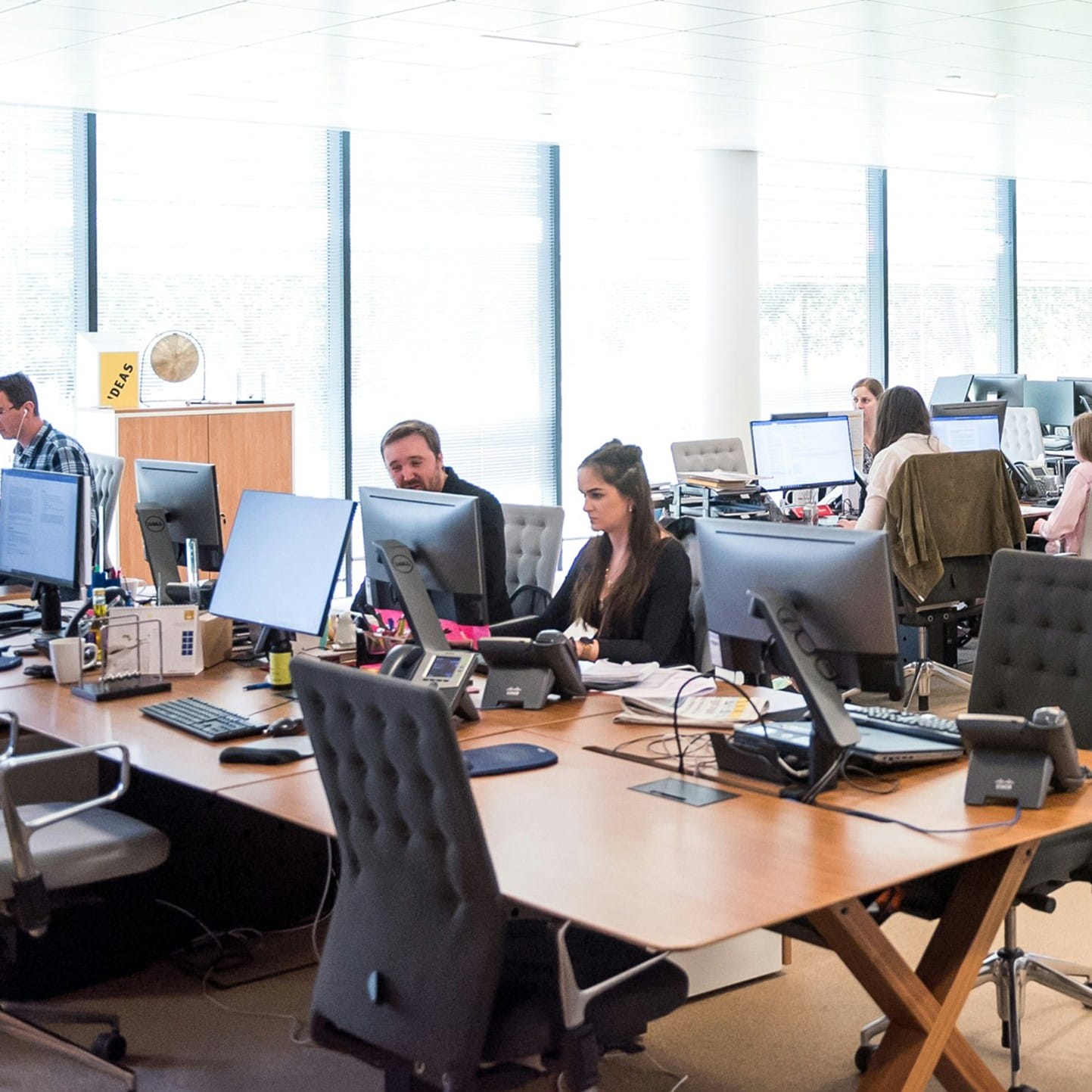
We spend a big part of our lives at work. It’s where we talk with others, solve problems, and try our best to do a good job. But sometimes, people show up to work while quietly struggling inside. Behind smiles and small talk, many are dealing with stress, sadness, or feelings they don’t know how to share.
Mental health struggles are more common than most people realize. And when no one talks about them, the silence can be harmful.
This Mental Health Awareness Month, Bio-One wants to talk about something that doesn’t get enough attention. We want to help more people understand how important it is to support mental health at work. Because when someone feels safe enough to open up, it might not just help them feel better. It could actually save their life.

Mental health challenges don’t stop when someone walks into work. If a person is feeling anxious, depressed, or overwhelmed at home, those feelings usually come with them to the office, the warehouse, or the job site.
Many people do their best to keep going. They show up, smile, and try to focus. But on the inside, they might be hurting. They could be dealing with grief, trauma, stress, or other serious mental health struggles, and no one around them even knows.
Why don’t more people speak up?
Because they’re afraid.
So instead, they stay silent. And that silence can make things worse.
At Bio-One, we’ve seen what happens when people suffer in silence. That’s why we believe it’s important to create spaces, especially at work, where people feel safe talking about what they’re going through.
It’s not always easy to tell when someone is having a hard time. At work, many people try to hide what they’re feeling so they can “push through” the day. But there are often small signs that can let us know when a coworker or friend might be struggling with their mental health.
Here are a few things to watch for:
These signs might not seem like much at first. But together, they can show that someone is not okay.
Even if you’re not sure, it’s always a good idea to check in. A simple “Hey, I noticed you’ve seemed a little off. Want to talk?” can let them know they’re not alone.
Sometimes, just being seen and heard can help someone take the next step toward getting support.

When people feel like they can't talk about their mental health, it can make everything worse. Silence often leads to shame. And shame can make someone feel even more alone.
At work, this silence can feel extra heavy. Someone might be struggling every day, but if they believe no one will understand or they’ll be judged, they may never speak up. Instead of asking for help, they keep everything inside.
That kind of isolation can be dangerous.
At Bio-One, we’ve responded to tragic calls where someone lost their life to suicide. It doesn’t just happen at home. We’ve been called to clean up offices, warehouses, and other workspaces where a person felt there was no way out.
Many of those lives might have been saved if they had felt safe enough to speak up.
This is why it matters to talk about mental health at work. Because when we make space for honest conversations, we make it easier for people to get the help they need, before it’s too late.
You don’t have to be a manager or part of the HR department to make a difference. Every person in a workplace can help create a space where mental health is talked about openly and kindly.
Here are some simple ways to start:
These small actions help build trust. And trust creates a workplace where people feel more supported, connected, and safe to be honest about what they need.

Leaders have a powerful role in shaping workplace culture. When managers talk openly about mental health and support their teams, it sends a clear message: it’s okay to speak up, and it’s okay to need help.
Here are a few ways leaders can make a real difference:
When leadership takes mental health seriously, it sets the tone for the entire workplace. It helps build a culture of care, and that can save lives.
Talking about mental health at work might seem small, but it can have a huge impact. It’s not just a kind thing to do. It’s a real form of suicide prevention.
When people feel like they can be honest about how they’re doing, they’re more likely to get the help they need. A caring conversation at work could be the moment that helps someone keep going.
Here’s what open, supportive workplaces can offer:
These things may seem simple, but they can make a life-changing difference.
Every conversation matters. Every person who chooses to listen, share, or care helps make the workplace a safer space for everyone.
At Bio-One, we’re called in after some of life’s hardest moments. We clean up after tragedy, but we would much rather help prevent that tragedy from ever happening.
This Mental Health Awareness Month, we’re encouraging every workplace to take a step toward being more open, more caring, and more supportive. Whether you’re an employee, a manager, or a business owner, your words and actions matter.
One conversation can help someone feel seen.
One kind question can remind someone they are not alone.
And one safe space at work could be the reason someone chooses to stay.
Let’s work together to make sure no one suffers in silence.
Let’s make it easier to talk about mental health.
Let’s make our workplaces places where people feel supported every day.
Because sometimes, a simple conversation really can save a life.
Because many people are silently struggling, when mental health is ignored in the workplace, it can lead to isolation, shame, and even tragedy. Open conversations create safer, more supportive environments where people feel seen and are more likely to ask for help.
Look for changes such as:
Check in with them gently. Try saying, “Hey, I’ve noticed you don’t seem like yourself lately. Want to talk?” Just showing that you care can help them feel less alone.
Yes. Everyone can help create a more supportive workplace. You can lead by example, check in with others, and talk openly about your own stress or mental health experiences.
Many people are afraid of being judged, looking weak, or losing their job. That fear leads to silence, and silence can make mental health struggles worse.
Managers can:
Yes. When someone feels safe and supported, they are more likely to speak up and get help before reaching a crisis point. Honest conversations can be life-saving.
Silence can lead to shame and isolation. Bio-One has responded to suicide scenes in workplaces where people may have never felt safe enough to talk about what they were going through. That’s why early conversations matter.
Start small. Talk about stress, burnout, therapy, or self-care in everyday conversations. The more we speak openly, the less scary and “taboo” the topic becomes.
Ask someone how they’re really doing—and mean it. That one question could help them feel seen, heard, and valued. It’s a simple step that could make a big difference.



